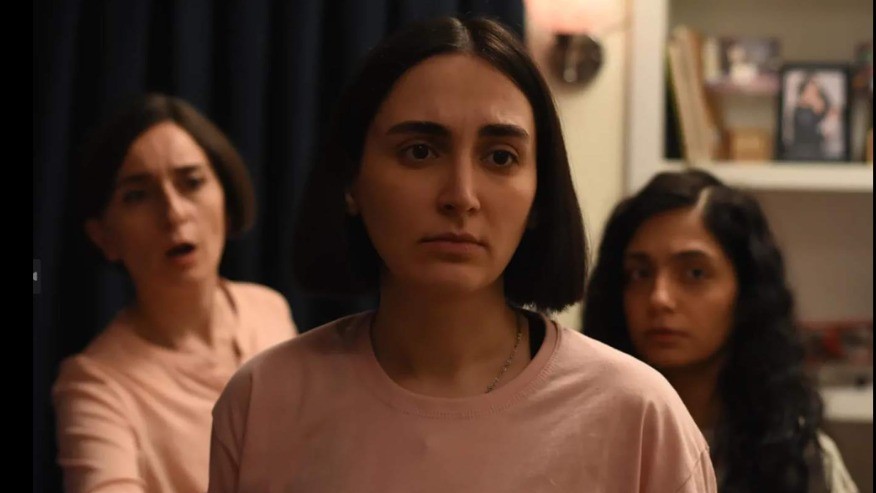Title: The Seed of the Sacred Fig
Director: Mohammad Rasoulof
Cast: Soheila Golestani, Missagh Zareh, Mahsa Rostami, Setareh Maleki, Niousha Akhshi
Where: In theatres near you
Rating: 4 Stars
This film is a searing depiction of authoritarianism’s reach into the most intimate spaces—home and family. Set against the backdrop of Iran’s escalating political unrest, the film weaves a chilling narrative about power, paranoia, and resistance within the walls of a single household.
The story revolves around Iman, an investigating judge in Tehran’s Revolutionary Court, whose recent promotion grants him newfound authority—and a firearm for “protection.” As protests erupt nationwide, his family dynamic begins to fracture. Iman’s wife, Najmeh, and his two daughters, Rezvan and Sana, wrestle with the consequences of his alignment with the regime. The plot takes a sharp turn when Iman’s gun mysteriously vanishes, triggering his increasing distrust. This loss of control serves as both a symbol and a catalyst for the breakdown of familial trust and the broader tension in the country.
Director Mohammad Rasoulof’s screenplay excels in subtle storytelling, with family tensions reflecting broader societal fissures in Iran and how oppression seeps into personal lives. The film’s strength lies in its restraint, opting for slow-burning intensity over melodrama. Though occasionally faltering, the pacing mirrors life under authoritarian rule and builds to an explosive climax of betrayals and familial confrontations.
Missagh Zareh delivers a haunting performance as Iman, portraying a man caught between the outward confidence of his new role and the internal conflict it breeds. His descent from a loving father to a figure of fear is both heartbreaking and terrifying. Soheila Golestani shines as Najmeh, whose quiet resilience and eventual defiance lend emotional depth to the film. The daughters, played by Mahsa Rostami and Setareh Maleki, bring youthful energy and simmering rebellion to their roles, offering a stark contrast to their father’s rigidity.
The direction is deliberate and immersive, turning the family home into a microcosm of a nation under surveillance. The camera lingers on mundane domestic scenes, allowing tension to build naturally. These quiet moments of normalcy are pierced by the underlying fear that permeates every interaction. The film’s cinematography by Reza Bahrami juxtaposes the claustrophobic interiors of the family’s home with raw footage from the 2022–2023 protests, adding a layer of realism and urgency. This contrast reinforces the film’s themes, highlighting the dissonance between personal and political realities.
The absence of a heavy score is a strength; the sparse sound design amplifies the sense of unease. The restrained sound is impactful, allowing the depth of the narrative to breathe. This emphasis on silence and space enhances the claustrophobic atmosphere and highlights the crushing weight of paranoia- both personal and political.
The symbolism in the title, referring to a fig species that wraps around and strangles its host tree, is potent—reflecting the suffocating nature of the Iranian theocratic regime. While the film’s reliance on symbolism may alienate some viewers, it’s impossible to ignore the emotional and political resonance embedded in every frame.
Overall, the film is a poignant and timely exploration of power, trust, and repression. With its masterful direction, strong performances, and raw portrayal of Iran’s political climate, the film leaves a lasting impact, establishing itself as an essential work in contemporary Iranian cinema.
